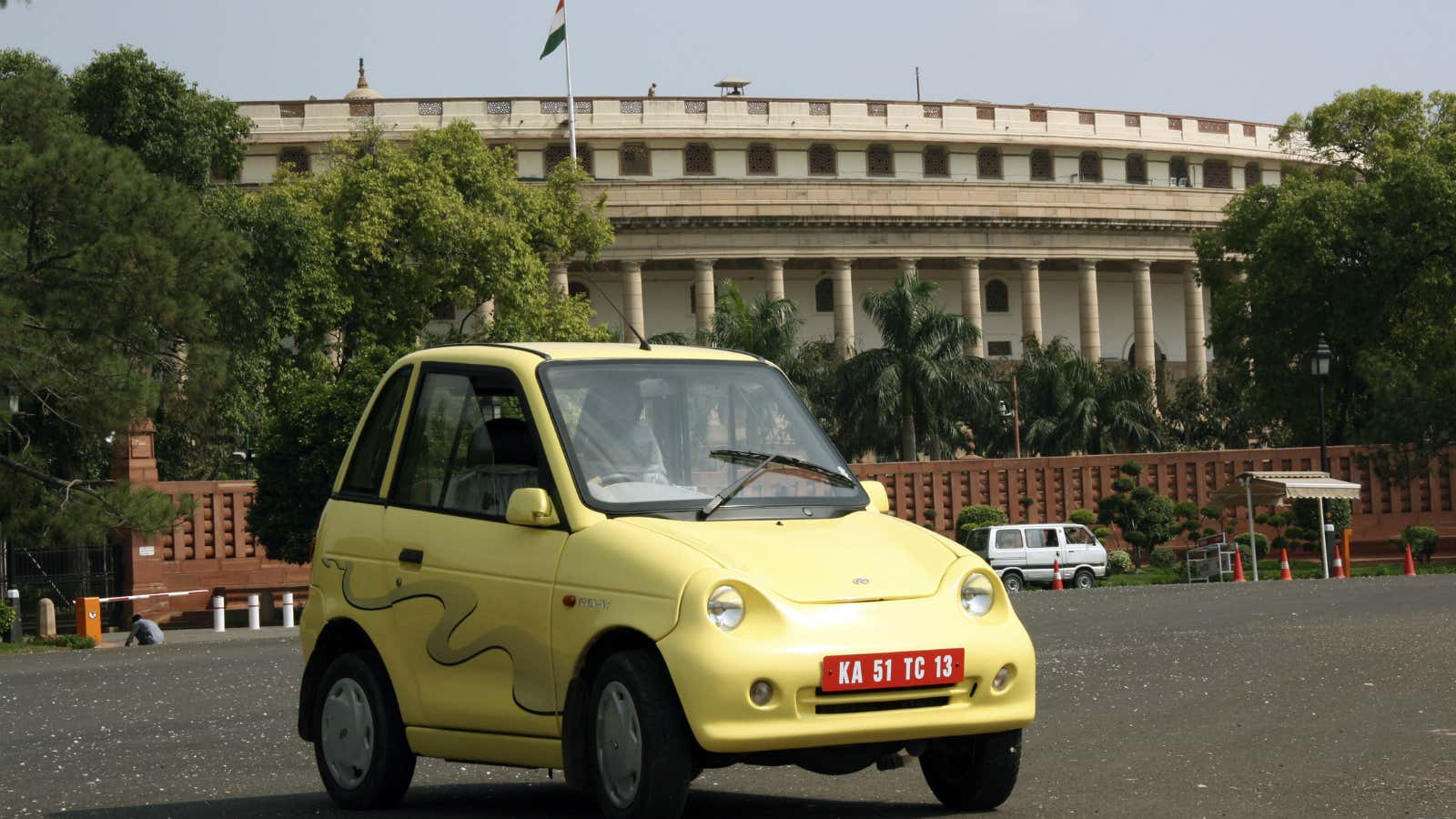India’s obsession with affordable small cars could delay the Narendra Modi government’s ambitious plan to only sell electric vehicles (EVs) in the country by 2030.
Weaning Indian automobile customers away from low-cost cars to the significantly more expensive EVs will be an uphill task unless the government subsidises the companies to help bring down prices. However, authorities are yet to do anything to make EVs attractive to consumers, Bloomberg New Energy Finance’s (BNEF’s) report on long-term EV outlook said.
And this lack of affordability leads to a grim outlook. “Low average vehicle prices will inhibit EV uptake for the next 10 years before adoption rises in the 2030s…We expect EVs to represent just 10% of India’s total passenger vehicle fleet in 2040,” said the report released on July 06.
In any case, it’s not only BNEF that has raised the issue. The industry, too, has referred to the need for monetary support from the government to popularise EVs in a price-sensitive market like India.
“Nobody would buy a Rs5 lakh car which would entail an additional cost of Rs7 lakh (after electrification). Affordability becomes a huge problem,” Maruti Suzuki India chairman RC Bhargava had said in April this year.
Besides, the government’s dillydallying on a concrete EV plan has not helped the segment.
Months after announcing the “EV only” plan, the government did an about turn, informing parliament in January this year that there was no such plan at all. Then, in March, power minister RK Singh said the government would come up with a policy that would have both a regulatory framework and technical standards on EVs.
Many companies are in a wait-and-watch mode due to this inconsistency.
For instance, Korean carmaker Hyundai Motors is yet to decide if it should make EVs in India or import and assemble them locally. ”The former (local manufacture) will translate into cheaper vehicles in a price-sensitive market, but the latter (import) will be quicker to implement,” Rakesh Srivastava, director for sales and marketing of Hyundai Motors India, had said at the Delhi Auto Expo in February. “The other challenge in India’s EV market is finding a balance between affordability and volume.”
The BNEF report even suggests creating strict EV quotas like China has done. According to China’s new policy, automakers are assigned EV scores linked to their production of various types of zero- and low-emission vehicles. Starting 2019, this score has to be at least 10% of the company’s overall car production, rising to 12% in 2020.
